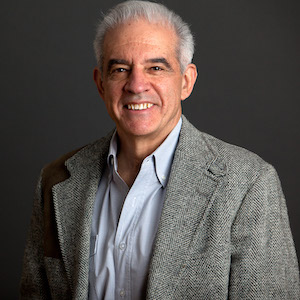https://booktrib.com/wp-content/uploads/2019/05/Christina-300×300.jpg
Christine Davis Merriman
Historical Fiction
In her debut novel At the Far End of Nowhere, father and daughter weave fact with fiction and merge reality with fantasy to reveal a broader truth.
Christine Davis Merriman completed her MFA in Imaginative Writing/Fiction at UMass Amherst forty years ago. As an undergrad, she won Towson State University’s John S. Lewis Fiction Award for a collection of short stories, and was eager to pursue a career in fiction. Then “life” intervened, with marriage, a son, divorce, a second marriage, and a thirty-year career at Johns Hopkins. In 2017, she retired, put down her technical writer’s pen, and completed her debut novel, At the Far End of Nowhere. It is now available as an audiobook on Libro.fm, Audible and other audiobook outlets. Christine and her husband live in a 1929 farmhouse in northern Baltimore County, Maryland.
Read BookTrib’s review of Christine’s book, At the Far End of Nowhere.
For more information, visit Christine’s website.
BOOKS:
At the Far End of Nowhere (2018)
Biggest literary influencers:
Too many to name. They include Anton Chekhov, Leo Tolstoy, Katherine Mansfield, Doris Lessing, Guy de Maupassant.
Last book read:
Senselessness by Salvadoran novelist Horacio Castellanos Moya, whom I met recently at the 2019 Juniper Literary Festival in Amherst, MA.
The book that changed your life:
At age four, just learning to read, and while visiting the old maid across the back alley, I came upon a children’s book, A Patch-Work Quilt of Favorite Tales, spread open, seductive as Pandora’s box, on her reading table. As I turned its pages, drawn in by full-color illustrations of animals wearing people’s clothing, the old lady recognized my enthrallment and gave me the book. At home, seated in my child-size rocking chair, I began, with my mother’s help, to read the tales out loud. The sounds of words, cadences of sentences, and patterns of stories awakened a knowing deep inside me. I became my favorite story’s protagonist, the Little Small Red Hen who outsmarted the fox and prevented him from cooking her for supper. Dressed in shoes and an apron like hers, I acted out the story in my back yard. With that book, I became a storyteller.
Your favorite literary character:
The house itself in Hawthorne’s The House of the Seven Gables is my favorite literary character. That “venerable mansion” personifies the old farmhouse I grew up in, governed as it was by my father’s antiquated beliefs. The poisoning and diminishing effect the house and its familial curse had on Hepzibah is similar to the authority our old family home held over me, especially in those years after my mother died, when my father’s reclusive behavior made me grow frantic, fearful of forfeiting my youth while caring for him in his later years. At my father’s wish, I dropped out of college, giving up a four-year Senatorial Scholarship, to stay close by him. Although I loved my father, I often wished—secretly, guiltily, shamefully—that he would die so I could escape that farmhouse and be free to live, to be young and happy.
Currently working on:
Book Two of the Lissa Power Series, Where Everything Begins. Lissa awakens from her sheltered American childhood as she spends her junior year abroad in France (1973–74), gets to know students from many other countries, and travels around Europe. Accosted by troubling news from the United States—gas shortages, the erupting Watergate scandal—and exposed firsthand to a daily clash of international cultures, Lissa seeks a truth that is broader than the one she grew up with.
Words to live by:
LEARN TO WALTZ WITH AMBIGUITY. SEEK A BROADER TRUTH. “Truthful” fiction stretches our shared consciousness and discloses nuances not captured by the inflexibility of fact. True fiction weaves patterns of character and plot that seduce us, demand our attention, capture our imagination, encourage us to probe ambiguity, and offer a safe space for balancing the mind’s contradictions.
Advice to new and aspiring authors:
A true writer, confronted by a maze of alternate pathways and unforeseen detours, must persist, always persist, in following the urgings of the heart.
Articles / Reviews:
Baltimore magazine, December 2018
Customer reviews on Amazon
Medium Article: When Writing Brings Women Together
Guest Blog on A Writer of History: Transported in Time and Place
Testimonials:
“At the Far End of Nowhere is a wonderfully mature debut novel! Its evocation of the relationship of a daughter to a father old enough to be her grandfather is remarkable in its shrewd and careful—and moving—depiction of the particular bonds that unite them and that inform their unique struggles. This is an original novel about eccentric, vibrant, haunting characters, and it is written in a limpid, affecting voice. Christine is a gifted storyteller, and she has written a twenty-first century Silas Marner that allows us to understand the uniqueness of the love between a father and daughter in new and memorable ways.”
— Jay Neugeboren, author of Max Baer & the Star of David
***
“It’s hard to imagine a more moving, and at times disturbing, portrait of filial love than that depicted in Christine Merriman’s remarkable new novel, At the Far End of Nowhere. Left a widower when his young wife dies, Stouten Power takes on the responsibility of raising his young daughter and son at a time when he might more realistically be a grandfather than a father. Stouten’s struggles with a changing world are touching and real. While the relationship with his daughter, Lissa, might be described as co-dependent, it’s really more entwined than that and it threatens to rob Lissa of a full life.
“Through a number of chapters detailing scenes of Lissa’s childhood and adolescence we see her struggle to separate from her exacting father, but separation is finally only accomplished through Stouten’s moving death at the age of 94. Contemporary readers of memoir might be tempted to read something unhealthy into Merriman’s claustrophobic rendering of life with father, but the truth is sociology cannot compete with love. At the Far End of Nowhere stands as a brilliant and uncompromising vision of a singular family. I recommend it highly.”
— David Milofsky, author of Managed Care
***
Christine Davis Merriman’s debut novel, At the Far End of Nowhere, immediately transports the reader to the journey of Lissa, a girl of the 1950s. Merriman expertly balances the tumultuous cultural and political shifts of these decades alongside the smaller, but no less significant, transformations of Lissa’s life.
When we are first introduced to Lissa, she is a child, navigating her life under the wing of her protective father, Stouten. He teaches her about his version of the world and its magic with tales from his childhood. “The world is not always safe,” Lissa affirms, “except when my daddy takes me back with him to once upon a time, where everything is magical and you can make true whatever you want it to be. He takes me with him to the far end of nowhere, where everything begins.”
Lissa grows into a young woman as the novel progresses, and Merriman manipulates the changes in Lissa’s vocabulary and interests with ease. Even when the events of Lissa’s life become devastating, as she deals with sexual abuse, the death of her mother, and the job of caring for an elderly Stouten, Merriman effortlessly maintains Lissa’s grounded and open, and, perhaps most importantly, hopeful voice.
Despite many big moments in the book, the novel has a quiet tone, thanks in part to Lissa’s voice, but also to the literary quality of the writing. It almost feels as though we readers take the path of this novel through the found journals of Lissa, wherein there is very little dialogue and a great deal of introspection, wide pastured-settings, and, of course, magic tales. By the final pages of At the Far End of Nowhere, we readers are surprised to find how deeply we root for Lissa, as well as how deeply she has taken root within us.
— Raquel Vasquez Gilliland, author of Dirt and Honey


